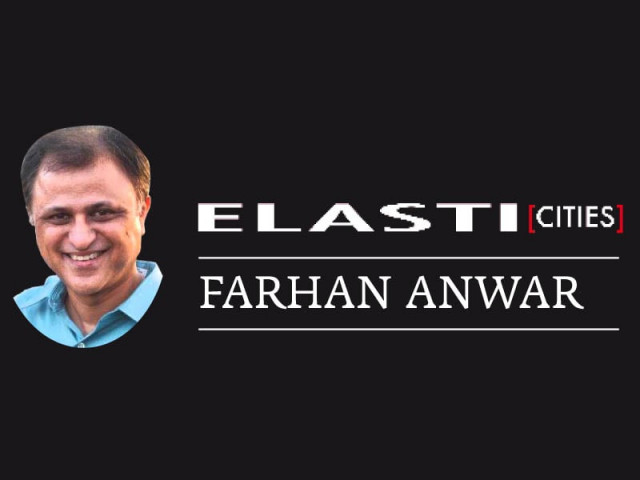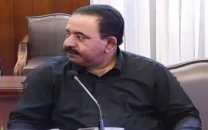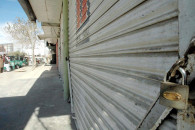Planning sans data: Our development dilemma
Researchers in Pakistan use randomly collected data in the absence of data that is scientifically relevant.

Researchers in Pakistan use randomly collected data in the absence of data that is scientifically relevant.
Although we plan and envision a lot at the government level, complete with impressive-looking dossiers of documents, the plans almost always lack adequate data and background research.
The biggest example of the apathy towards authenticated data is that the government has not been able to conduct a 'census' since 1998. We have no idea how many of us actually are there. Instead, we rely on estimates and guestimates for most of the studies and development plans.
Researchers in Pakistan use randomly collected data in the absence of data that is scientifically relevant. This randomly collected data would fail to fulfill any international criteria for acceptable scientific research. The problem is that even large donor agencies have come to rely on such secondary or randomly collected data.
It is generally accepted that solid and verifiable data forms the backbone for feasible policy making and development planning. Take the case of our government's desire to develop an 'Integrated Coastal Management' (ICM) programme for Pakistan. Should such a programme take shape and be implemented, it would be of great significance for Karachi in particular.
Ironically, while there have been several conferences and plenty of foreign visits by the relevant officials, no attention has been paid to the basic requirement of this multi-faceted task.
As a result, we have still not been able to define what constitutes as a 'coastal zone' for Pakistan. The main reason for this is the lack of required research and data. The most broadly accepted definition of a coastal zone, as defined in the 'National White Paper for Sustainable Coastal Development in South Africa' is "that area where the marine environment interacts, influences, and affects the terrestrial environment." This is the first step towards the establishment of a viable ICM programme that can then facilitate an integrated approach, considering the interests of both land and marine components of the coast.
It is also critical to realise that the ICM enhances the interface between science and policy by providing various scientific tools. However, other than not being able to define the limits and zoning applications of a 'coastal zone', information about any particular zone or area of ecological importance lacks coherence and connectivity. Non-application of the requisite technological tools severely limits the scope and viability of our planning and implementation efforts.
The most widely used method to determine a coastal zone based on a range of pre-established criteria is mapping. In the general information and guidance on developing and implementing an ICM programme, the United Nation's Environment Programme (1995) includes specific tools and techniques of Geographic Information System (GIS) and data management. It would therefore be logical to start by preparing a comprehensive GIS map of the Pakistan coast and thereby, initiate an exercise on primary data generation on the ecological, environmental, social and financial aspects of the Pakistan coast.
For a commercially vibrant city such as Karachi, coastal profiling will help identify ecologically sensitive or economically important zones that can promote tourism-related facilities and even sites for generation of clean and renewable energy. However, all this will have to be merged with a strong focus on human resource development and the technological upgrade of relevant agencies. Research and development and academic institutions will need to be developed so that they may be able to conduct state-of-the-art research. The institutions will need to introduce curriculum dealing specifically with coastal management and the use of spatial GIS mapping.
This is just one example where development of an ICM programme has been discussed to highlight a pervasive shortcoming. There is a need to focus on initiating a process of continuous data generation and develop updated data banks through application of scientifically acceptable tools and methods. Otherwise the planning process will fall apart once the plans enter the implementation stage.
Source: GIS for Coastal Zone Management, 2001, Edited by Darius Bartlett and Jennifer Smith, CRC Press
Farhan Anwar is an urban planner and runs a non-profit organisation based in Karachi focusing on urban sustainability issues
fanwar@sustainableinitiatives.org.pk
Published in The Express Tribune, May 26th, 2014.



















COMMENTS
Comments are moderated and generally will be posted if they are on-topic and not abusive.
For more information, please see our Comments FAQ